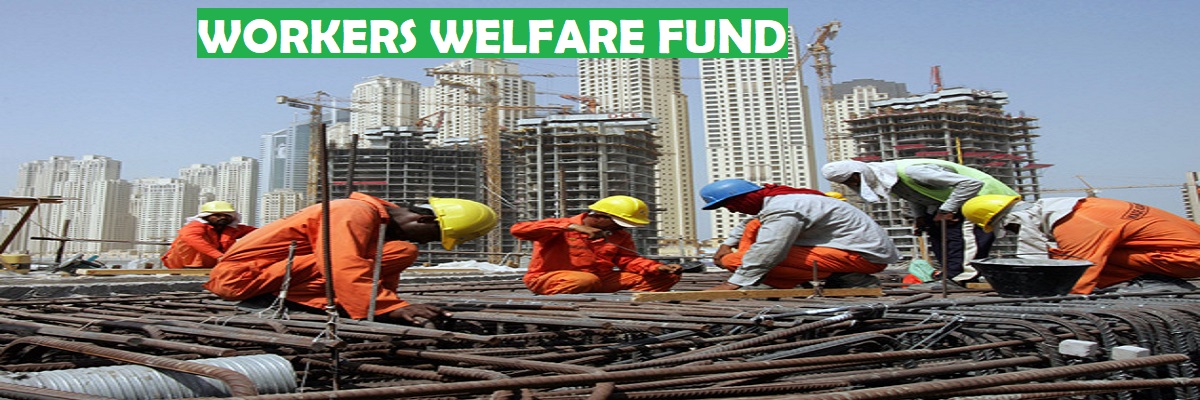
WHAT IS THE FUND FOR?
Bangladesh Government has created the fund for workers, where companies deposit one tenth of their annual net profit, in line with the labour law. So far, more than 123 local, foreign and multinational companies have chipped in to create the fund.
The fund is being directed towards financial aid and benefit of workers engaged with the professional and non-professional sectors of the country.
Bangladesh is giving BDT 2 lakh financial assistance to any worker who has died in the workplace, BDT 1 lakh for any worker who sustained incurable ailment, BDT 3 lakh for education of their children in state-run engineering, textiles or agricultural universities.
So far, Bangladesh has disbursed BDT 25 crore for the welfare of workers.
How workers’ welfare fund is transforming their children’s lives
Companies have to spend 5 percent of their net profit for the welfare of their workers – 10 percent of which they have to submit to the BLFW fund
Sabrina, the daughter of a rickshaw puller from Gaibandha, was worried and frustrated after enrolling at the Shaheed Ziaur Rahman Medical College.
She was uncertain of finishing her studies as her family did not have much money to spend on her education.
“At that time, one of my elder sisters told me to apply for the Bangladesh Labour Welfare Foundation (BLWF) scholarship. I applied for it and received Tk50,000 – which rid me of all worries. I bought some new books and other reading materials with the money. It inspired me to think more about my life,” said Sabrina.
Like her, children of 866 workers have received scholarships from the foundation under the Ministry of Labour and Employment.
According to ministry sources, the BLWF provides scholarships for the children of institutional and non-institutional labourers studying at public universities and medical colleges across the country.
It gives Tk40,000 to the students of general public universities and Tk3 lakh to the children studying in engineering universities and medical colleges.
According to the Labour Law 2006, companies have to spend 5 percent of their net profit for the welfare of their workers – 10 percent of which they have to submit to the BLFW fund.
“I have a brother and a sister. My sister is an HSC student and my brother is a ninth grader. My father spends all the money he earns on our education. Sometimes we have to go without food,” Sabrina told The Business Standard.
After receiving GPA-5 in both her Secondary School Certificate and Higher Secondary Certificate (HSC) examinations, she dreamt of becoming a doctor.
“I took part in the medical admission test and got a chance to pursue my dream in 2018. However, I was uncertain of managing the admission fee or other expenses. My father somehow managed it.
After admission though, Sabrina faced financial difficulties.
“I felt so happy when I received the scholarship from the Bangladesh Labour Welfare Foundation. It felt like I got a new life,” she said.
Labour and employment ministry sources said that a total of 151 companies gave about Tk400 crore to the foundation’s fund.
Of them, Grameenphone alone gave Tk120 crore while Robi Axiata Limited gave Tk114 crore.
Sajida Begum, daughter of a worker of Platinum Jubilee Jute Mills, is now studying at the Khulna University of Engineering and Technology.
“My father is a labourer. We have been going through hardships since our childhood. Sometimes it was very difficult to pay our tuition fees. But my parents never neglected it as they were very serious about our education,” Sajida said.
She explained that it was very difficult for her father to bear the expenses, as her brother was also studying at the Dhaka University of Engineering and Technology in Gazipur.
“I have benefited so much from the scholarship. It helped me to continue my studies smoothly. The authorities also assured of giving me more money. It is definitely a praiseworthy and exceptional endeavour,” she added.
Sajida said she no longer worries about money and concentrates solely on her studies.
Her father said that it was his dream to raise his children as educated people. But, sometimes he felt helpless when he failed to manage the study expenses for his children.
“I came to Khulna from Gopalganj district and joined the jute mill. I never earned any money through illegal means even when I was facing severe problems. I am very grateful to the BLWF authorities for their scholarship. This is a huge amount of money for us,” he said.
However, many workers are still in the dark about the scholarship as the Ministry of Labour and Employment has taken no initiative to inform workers about it.
Fahad, a student of Islamic University in Kushtia, lost all hopes of continuing his study after his father passed away. Physically challenged Fahad was a second-year student then.
He had no way of paying his tuition fees as he did not know about the Bangladesh Labour Welfare Foundation scholarship.
“I decided to give up on education as there was no one to support me financially. But, after I applied for the scholarship and received the money within a short time, it changed my life,” he added.
Dr Md Rezaul Haque, director general of the Bangladesh Labour Welfare Foundation said, “We provide money to workers for medical treatment and to fund higher education for their children. Although we have a lot of funds to disburse, we receive very few applications.”
He added that they had taken steps to spread awareness to the labourers about the scholarship.
“I feel joy when I see brilliant students continuing their studies after receiving the scholarship. Their satisfaction and gratitude make me happy,” the director general said.
Replying to a question on expanding the fund to the secondary and higher secondary levels, he said, “It will be difficult for us to offer the scholarship to students at the secondary level. We just give it to the students who had proved their talent by getting chance to enrol in different public universities and medical colleges.”

